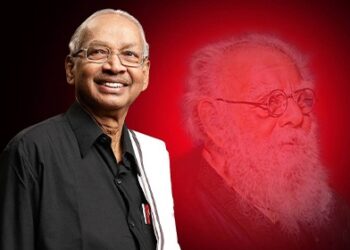A.K. Thamizh Thendral
Law Student, Chennai
Parliamentary privilege is an essential incident to the high and multifarious functions which the legislature is called upon to perform. This legal immunity is common in countries whose constitutions are based on the Westminster system, which includes a ceremonial head of state with reserve powers, a de facto executive branch comprising legislative members, and opposition parties.
The constitutional framework for parliamentary privilege in India is established in Articles 105 and 194 of the Indian Constitution, which apply to Parliament and state legislatures, respectively.
Article 105 (1) – Freedom of speech in Parliament
Article 105(1) grants MPs absolute freedom of speech during parliamentary proceedings, which is essential for democracy as it allows them to represent constituents, express opinions, criticize government policies, and deliberate without fear of external repercussions. This freedom is limited to activities within the House, such as speeches, debates, and questions, meaning MPs cannot be sued for defamation or face legal action for statements made in Parliament. However, they remain accountable to the rules of procedure, which prohibit unparliamentary language or conduct.
Article 105 (2) – Immunity from legal proceedings
Article 105(2) grants absolute immunity to MPs for any statements, speeches, or remarks made within Parliament or its committees, allowing them to debate, criticize policies, and discuss any issue without the risk of defamation or legal action. The term “anything” covers a broad range of expressions, with the only limitation being that these remarks must occur “in Parliament” during its sessions and business.
Article 105 (3) – Power to regulate internal proceedings
The privileges under Article 105(3) can be divided into two broad categories. The first category is Individual Privileges, which are granted to individual MPs to ensure they can carry out their parliamentary duties without hindrance. These privileges include freedom of speech, immunity from arrest, and exemption from jury duty or subpoenas. The second category is Collective Privileges, enjoyed by Parliament as a whole, which encompasses control over internal proceedings, the right to initiate contempt proceedings, and the secrecy of parliamentary debates. Together, these privileges safeguard the functioning of Parliament and its members.
Article 194 – Powers, privileges, etc., of the House of Legislatures and of the members and committees thereof
Articles 105 and 194 are almost identical in their purpose and provisions, with Article 105 applying to Parliament and Article 194 to state legislatures. Both grant members freedom of speech, immunity from legal proceedings for actions within the House, and the ability to define further privileges by law. The main difference is their scope—one applies at the central level, and the other at the state level—but both are crucial for ensuring legislative independence and free debate without fear of legal consequences.
CHALLENGES TO PARLIAMENTARY PRIVILGES
Parliamentary privileges in India face several challenges. One concern is that they can hinder public scrutiny by shielding proceedings from transparency, potentially obscuring misconduct or decisions that should be open to public examination. Additionally, the broad scope of these privileges raises the risk of abuse, as members may evade legal accountability or suppress freedom of speech and press under the guise of protecting parliamentary operations. The reliance on conventions and unwritten rules also introduces ambiguity and inconsistency in how privileges are understood and applied. Furthermore, the extensive protections offered to members can act as a barrier to democratic accountability, complicating efforts to hold them responsible for their actions both within the legislature and in their interactions with the public. Lastly, certain aspects of these privileges, inherited from historical practices, may not align with contemporary democratic values that prioritize transparency and accountability. The parliamentary system thrives on collaboration and respect, yet recent behaviours, such as walkouts during important addresses, reflect a troubling disregard for decorum. While members have the right to dissent, this should not escalate into disruption; the ruling party must address concerns constructively to maintain harmony. The presiding officer must remain impartial to ensure smooth proceedings. Furthermore, the entry of dedicated individuals, rather than those with questionable backgrounds, is essential for the integrity of the legislature. Media also plays a critical role in fostering a positive democratic environment, as sensationalism and misinformation can undermine the institution’s credibility.
A major challenge to parliamentary privileges in India is their lack of codification, leading to ambiguity and inconsistent application. Many privileges are based on unwritten conventions, which can result in varying interpretations and potential misuse. This uncertainty may allow members to exploit privileges to evade accountability or suppress criticism, undermining democratic principles.

CONCLUSION AND SUGGESTION
In a parliamentary system, the privileges of the legislature, its members, and committees are vital for efficient governance, but clear distinctions between absolute and non-absolute privileges are necessary. Both Parliament and State Legislatures must enact laws cautiously to avoid infringing on other rights, and members should use their privileges responsibly to uphold public interest.
Effective legislators require more than professional skills; qualities such as intelligence, vision, empathy, and a strong work ethic are essential for shaping public policy. To address ambiguity and inconsistency, privileges should be clearly defined and codified, and independent oversight mechanisms should enhance transparency and accountability. Regular reviews and updates will keep these privileges relevant, while educating parliamentarians and the public about their scope and limitations is crucial for their reasonable application.
In the realm of parliamentary governance, the privileges afforded to its members are not meant to elevate them above the very people they serve. Instead, these privileges exist to empower them, ensuring they can engage in their duties without the shadows of fear or favour looming over them. Dr. B.R. Ambedkar wisely stated:
The privileges of Parliament are not intended to place Members of Parliament on a pedestal but to enable them to function without fear or favour.








